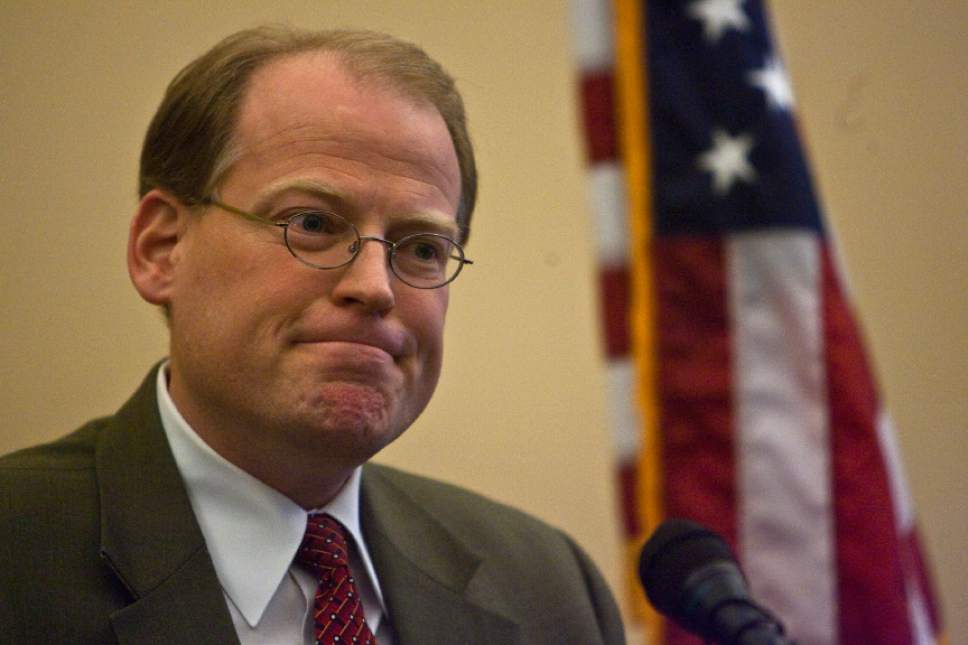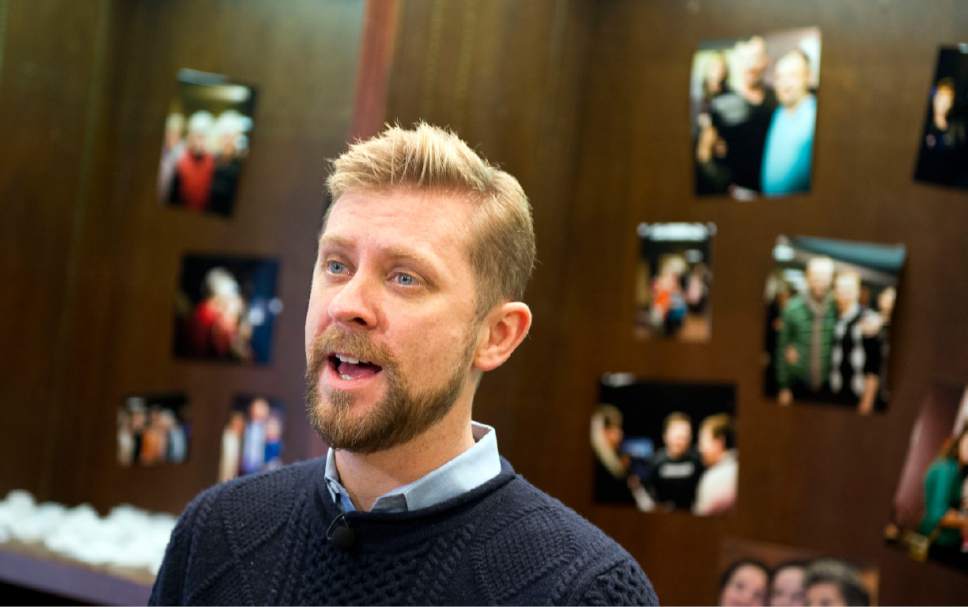This is an archived article that was published on sltrib.com in 2016, and information in the article may be outdated. It is provided only for personal research purposes and may not be reprinted.
A Republican representative wants to make clear in Utah law that the state favors couples in traditional marriages when it comes to placing children for adoption and foster care.
The effort by Rep. Kraig Powell, R-Heber City, comes in response to rulings by the U.S. Supreme Court that effectively wiped out a prohibition in Utah against placing children for adoption or foster children with gay parents.
"Between an opposite-sex couple and a same-sex couple, all other things being equal, the judge would grant preference to rewarding custody" to a heterosexual couple, Powell explained.
The reason, he argues, is that it is better for children to have a male and female role model in the family, exposing the child to more diverse gender roles.
Powell's bill — titled Parentage Amendments — will be released in a few days and, if it passes, would put back into law a preference for adoptions by couples with a male and female parent when the child is in the custody of the state and there is not a family member or anyone with an existing relationship who wishes to adopt the child.
Since the court's ruling last year, the state has been granting adoptions and foster placements to same-sex couples on the same terms as mixed-gender couples.
The bill would not affect private placement adoptions — only those for children who are wards of the state — and would not go so far as to completely prohibit adoptions and foster placements with same-sex couples, as the law previously had, but those couples would be considered as the last option for the child.
"I understand this is politically controversial. It's a real hot potato politically, but I think it's the Legislature's job to take on these hard questions," Powell said.
Rep. Angela Romero, D-Salt Lake City, wants to change the law to go in a different direction and make clear that any couple should be treated the same when it comes to adoption and foster care, regardless of their genders.
"I just want to ensure all families have the same rights," she said. "There are different formations of families that are healthy, and I think it's important to celebrate the diversity of all our communities. And whether it's a two-parent household or a single-parent household, kids thrive when they're loved."
Troy Williams of Equality Utah says Powell's bill is "discriminatory, and it is clearly unconstitutional" in light of the court's action.
"It violates equal protection, and court after court across this nation has rejected Powell's position that same-sex parents are inferior to [heterosexual couples]," Williams said. "I'm confident we'll see the demise of this bill because it's clearly unconstitutional and it doesn't have a legal leg to stand on."
Powell argues that, while the courts have settled the question of marriage, they have not ruled definitively on the issue of adoption and foster care, and he believes that should be a decision made by the state.
"I appreciate those who will be on the opposite side of this argument, and I understand and, in fact, welcome that there will be litigation over this because I don't want to assume that the courts would decide this case one way or another," Powell said.
The proposal is a reaction to the Supreme Court's ruling last year that legalized same-sex marriage across the United States.
As a result, Powell has been looking at dozens of references to "husband and wife" throughout the code, proposing simple cleanups as he goes.
One area Powell has decided to back away from is an attempt to repeal Utah's Amendment 3, a ban on same-sex marriage that was struck down by the courts.
Powell had introduced legislation to strike the amendment from the Utah Constitution, but he has abandoned the effort.
"It doesn't appear the language in Utah's Constitution is going to affect anything in a practical sense. It's invalid. It's unenforceable, and so it can just stay there," he said. "And many constituents have expressed to me that the Supreme Court might change its mind and we might have a change in national policy and it might someday be reactivated."
Twitter: @RobertGehrke





